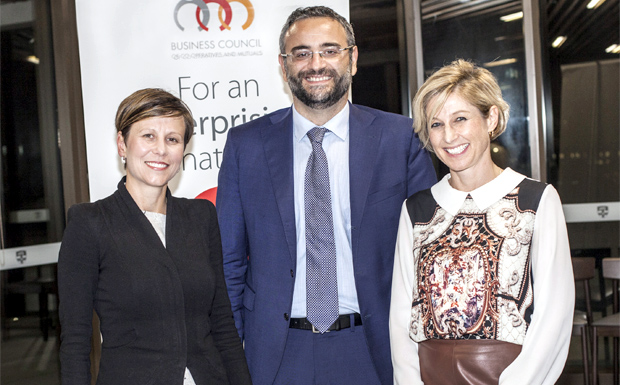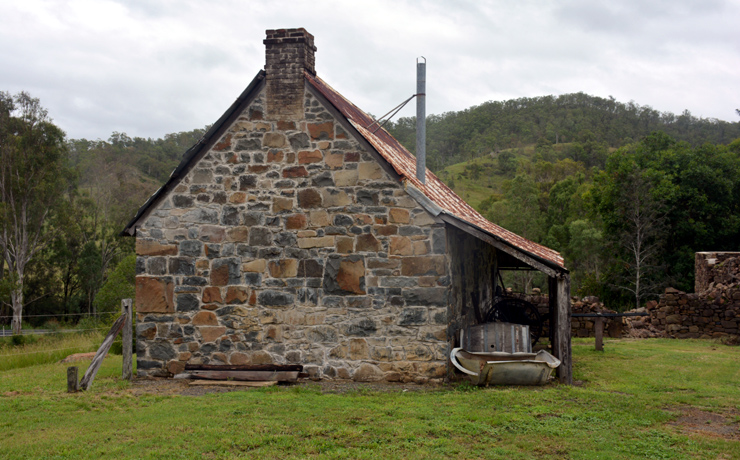
May 10, 2017
The Business Council of Co-operatives and Mutuals (BCCM) has welcomed a number of initiatives in this year’s Budget, but urged the government to reconsider the role co-operatives and mutuals can play in delivering services more efficiently.
The BCCM was formed in 2013 as the national peak body representing co-operative and mutual business models.
It represents the estimated 2000 co-operative and mutual businesses operating in Australia with a total of 14.8 million members, and is led by the chief executives of some of Australia’s largest co-operative and mutual businesses.
It’s board members are drawn from the RACQ, RACWA, the Co-operative Bulk Handling Group, Bank Australia, the Capricorn Society, CareSuper, Australian Unity, Common Equity Housing Limited and HCF.
“For the past 35 years, the co-operative business model has been sidelined by bureaucracies and policies designed to entrench the company business model as the ‘mature’ option,” BCCM CEO Melina Morrison said.
“Yet co-operatives and mutuals are still a fundamental part of the Australian economy and 79 per cent of the Australian population are member shareholders.
“This compares with 36 per cent of Australians who own listed investments on the Australian Stock Exchange.
“With some minor changes in Government thinking, the inherent stability and customer-focused nature of the co-operative/mutual model can continue to deliver services cost effectively and with tremendous community benefits.”
The BCCM said there were several measures in the Budget which should make it easier to register a co-operative or mutual in Australia.
“We’re heartened by almost $400 million to simplify business registrations and remove regulatory restrictions on small businesses and competition,” Ms Morrison said.
“But most Government business websites around Australia fail to even mention co-ops as a business model.
“This is clearly unacceptable. and we look forward to working with the States and Commonwealth in improving the information available.”
The BCCM said it is also looking forward to COAG agreements being measured for their efficiency, such as 2012’s Co-operatives National Law which aimed to harmonise the various State-based regulatory frameworks for co-ops.
The announcement of the Regional Growth Fund and the ongoing funding for a number of existing regional development policies would provide exciting opportunities for regionally-based co-operatives and community-owned infrastructure projects, Ms Morrison said.
The BCCM believes the formation of the National Housing Finance and Investment Corporation to facilitate community housing expansion presents a great opportunity for the development of co-operative housing.
“In other countries, co-operative housing initiatives have seen many people move into home ownership who previously only had a hope of renting,” Ms Morrison said.
The BCCM is also cautiously optimistic the announcement of tax incentives for Managed Investment Trusts which invest in affordable housing can also contribute to an expansion in co-operative housing stock.
Finally, the BCCM praised Budget initiatives to assist small business.
“Many Australian small businesses are members of co-operatives – for example, the 17,000 mechanics and crash repairer members of the buying co-operative, Capricorn Group,” Ms Morrison said.
“Any assistance which is given to small businesses, such as the continued $20,000 capital write-off, and small business company tax cuts, will be welcomed by BCCM members.”
Last week BCCM helped launch a new book by the Co-operatives Research Group, which compares the co-operative movements in Australia and Italy and explores why the co-operative sector is stronger in Italy compared to Australia.
“Cooperative Enterprises in Australia and Italy: Comparative analysis and theoretical insights” is the result of a three year partnership between the University of Sydney and University of Trento.
























